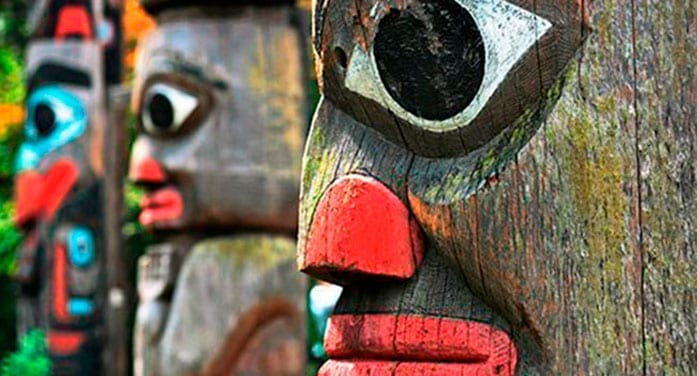BC believes it has reached a Haida Gwaii land ownership deal. Or has it?
By Geoffrey Moyse
I sincerely congratulate the Haida on their negotiations with the present provincial government.
Also, how can one not salute a truly remarkable feat of negotiation by our political leaders and bureaucrats?
Through sheer “hard government bargaining,” they have managed to agree to virtually 100 percent of what one assumes they (the Haida) had been seeking in the first place! What a tribute to shrewd government negotiations!
More importantly, it is a “result” that once again shows this government’s deep constitutional acumen. This is the same government that was convinced it had the constitutional authority to stop valid federal pipeline projects by “employing every tool in the toolkit”.
How well did that go exactly?
Clearly, we still have a provincial government that is not shy about taking advantage of what it perceives – no doubt again wrongly – to be the narrow limits of federal jurisdiction in Canada.
As an aside, I understand that the area of Haida Gwaii’s land mass is estimated to be just over 10,000 square kilometres.
The Nuchatlaht people, in their recent BC Supreme Court case, claimed Aboriginal title to about 201 square kilometres of their territory. The court recently awarded them such title to about 11.3 square kilometres of that area, which sounds like about 5.6 percent.
In 2014, in Tsilhqot’in – the only other court declaration of Aboriginal title in British Columbia to date – such title was declared over only a portion (about 1,750 square kilometres) of a claim area that itself was only about five percent of the entire Tsilhqot’in traditional territory.
To date, in BC, two court declarations of Aboriginal title to around 5.6 percent of territory and less than 5.0 percent of territory, respectively, have been made.
Contrast that with the provincial government “recognizing” the Haida Aboriginal title to the entire 10,000 square kilometres of their claimed terrestrial territory – fully 100 percent by my math.
With such a result, it’s obviously better for the public interest for the BC government to negotiate Aboriginal title rather than going to court to determine its exact geographic scope in law.
I wonder if this government decision considered any legal advice regarding the “sufficient occupation” requirement for proving Aboriginal title under Canadian law, or the division of legislative powers in Canada.
So, what is the likely legal reality resulting from this government’s highly skilled negotiations, which will soon be applied to Haida Gwaii?
The provincial government and the Haida contend that they have established, though “recognition” by the province alone, constitutionally-protected Aboriginal title to the whole of Haida Gwaii – including private lands.
Unfortunately, put simply, a province cannot legislatively single out “Indians and lands reserved for the Indians” under the 1867 Canadian constitutional division of powers, so it cannot unilaterally legislate an Aboriginal title that is at the core of exclusive federal jurisdiction.
This leads me to conclude that despite the agreement and the Act, no Section 35 Aboriginal title has been validly declared over Haida Gwaii, including the private lands.
Unfortunately, the NDP government has legally committed itself (and believes future governments as well) to acting as though there is Aboriginal title over all the lands of Haida Gwaii, whether true or not. It has also tried to make this supposed unilateral Haida Aboriginal title “recognition” irreversible by any future government by invoking the judicial concept of the “honour of the Crown” directly in its legislation.
In the meantime, it is so good to finally have some substantive legal clarity over Haida Gwaii’s land ownership.
At least until the inevitable constitutional challenge pulls down the whole house of cards.
Geoffrey S. Moyse KC is a retired senior lawyer who served as legal counsel to the province of BC, advising six successive governments on Aboriginal law over more than 30 years.
For interview requests, click here.
The opinions expressed by our columnists and contributors are theirs alone and do not inherently or expressly reflect the views of our publication.
© Troy Media
Troy Media is an editorial content provider to media outlets and its own hosted community news outlets across Canada.


